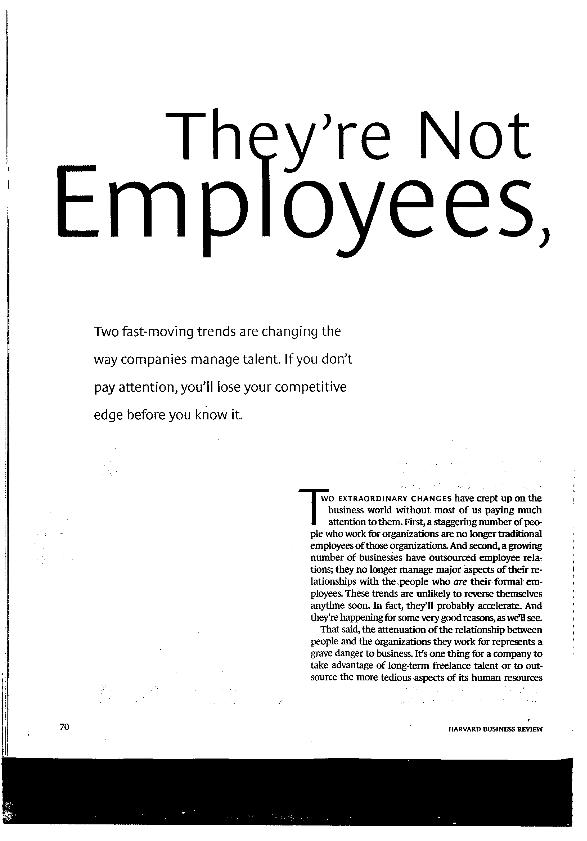They're not employees, they're people

Contenido multimedia no disponible por derechos de autor o por acceso restringido. Contacte con la institución para más información.
| Tag | 1 | 2 | Valor |
|---|---|---|---|
| LDR | 00000nab a2200000 i 4500 | ||
| 001 | MAP20071502303 | ||
| 003 | MAP | ||
| 005 | 20080418123235.0 | ||
| 007 | hzruuu---uuuu | ||
| 008 | 020325e20020201usa|||| | |00010|eng d | ||
| 040 | $aMAP$bspa | ||
| 084 | $a922.3 | ||
| 100 | 1 | $0MAPA20080190415$aDrucker, Peter F. | |
| 245 | 1 | 0 | $aThey're not employees, they're people$cby Peter F. Drucker |
| 520 | $aIn this essay, Peter Drucker examines the changing dynamics of the workforce in particular, the need for organizations to take just as much care and responsibility when managing temporary and contract workers as they do with their traditional employees. Two fast-growing trends are demanding that business leaders pay more attention to employee relations, Drucker says. First is the rise of the temporary, or contract. Second, a growing number of businesses are outsourcing their employee relations to professional employee organizations (PEOs)--third-party groups that handle the ever-mounting administrative tasks associated with managing a company's employees | ||
| 650 | 1 | 1 | $0MAPA20080624248$aDirección de recursos humanos |
| 650 | 1 | 1 | $0MAPA20080598662$aRelaciones laborales |
| 650 | 1 | 1 | $0MAPA20080559984$aOutsourcing |
| 650 | 1 | 1 | $0MAPA20080566968$aProductividad |
| 650 | 1 | 1 | $0MAPA20080566975$aProfesionales |
| 740 | 0 | $aHarvard business review | |
| 773 | 0 | $wMAP20077100345$tHarvard business review$dBoston$gFebruary 2002 ; p. 70-77 |

